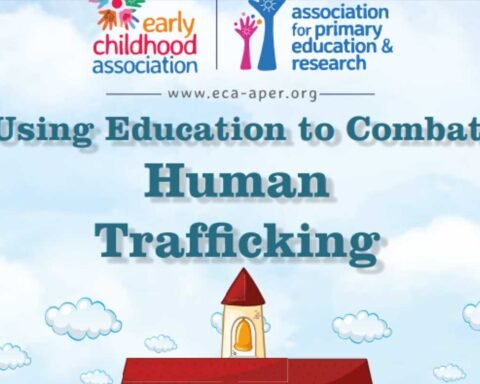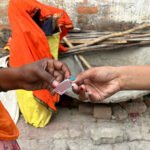Megha Gupta
Former Project Coordinator (ATC)
(This case was documented by Ms. Gupta during her time as a social worker in the ATC team)
Faiza (name changed) is a victim of commercial sexual exploitation. She was placed in a Children’s Home for her care and protection, after her rescue. Our Sentinel team had been directed to follow-up with the child and assist her with her rehabilitation process.
Faiza was interested in pursuing an education and wanted to join her school again. The staff of the Home appreciated the child’s interest in joining a school and was of the opinion that if the family was not the accused in the case, she could be restored earlier than planned, to ensure that she is able to join her old school from the next academic year. They further suggested that an educational venture could assist Faiza in pursuing her education.
The educational venture that the staff had suggested was offering options to pursue career options like journalism, law, and social work. If a victim of sexual violence was interested in pursuing one of the courses, she would be also provided with a monthly stipend and linked with resources near her residence to help her prepare for the same (like being enrolled in a coaching class or a school/college, etc). Faiza’s mother was not stable financially, so this could have proved a good opportunity for the child to pursue. The staff had spoken to Faiza about the same, and she seemed to be on board with the idea.
A few days later, Faiza seemed to be emotional in her interaction with the social worker. She was very worried about the involvement of the educational venture. According to the child, she was being asked to sign a paper consenting for assistance from the organization. She had also been informed that her photo and/or video would also be recorded by the staff of the organization, and could be displayed on their social media platforms as success stories.
The staff of this organization had informed Faiza that there were victims open to disclosing their identity, accepting and narrating the ordeal they went through, and how they eventually wanted to pursue one of the given options to work against gender-based violence. Faiza seemed quite distressed at the thought of stating her ordeal of being a victim of sex trafficking, who is now on her way to rehabilitation. She did not feel comfortable at the thought and started crying while talking about it. The social worker tried to make the child understand that she has the option of not opting for something that she is uncomfortable with.
Additionally, Faiza was interested in becoming a teacher or a writer. She also shared that the in-house counselor had informed her that Faiza was too young to be able to make a decision, and she should pick one of these options provided. Faiza did not feel comfortable with this either. It seemed like Faiza felt cornered into collaborating with the organization. According to her, she was pressured into signing the consent form at the earliest. She was 17 and was scared of making a decision about the future on her own. She was so nervous, that she even mentioned how she does not want to attend a regular school if this was a condition to access that. The social worker helped the child calm herself, and helped her understand that she had a right to ask for confidentiality.
The social worker suggested that the child request a meeting with her mother and the Child Welfare Committee to provide her with the information and clarity she would require in making the decision. Faiza seemed to feel better with this decision.
In Faiza’s case, the mere thought of voicing her ordeal before a camera revictimized the child to the extent of giving up her desire to pursue education through a regular school. Collaborating to provide assistance in rehabilitation is always important, but it is also necessary to be aware of the collaboration is coming with a cost that is not in the best interest of the child. Victims of violence may not always be open to sharing their stories, and making that a condition to rehabilitation can cause harm to the aggrieved mental health.
Any organization disclosing the identity of a child declared to be a child in need of care and protection as a success story goes against the principle of the right to privacy and confidentiality and the principle of a fresh start as envisaged in the Juvenile Justice (Care and Protection of Children) Act, 2015.









